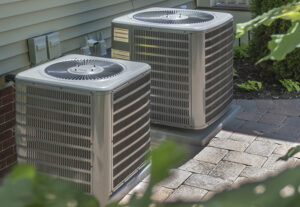 You may not be aware of it, but federal laws surrounding air conditioning systems are changing in 2023. Throughout the Southern United States, homeowners will be required to install air conditioning systems with a seasonal energy efficiency ratio (SEER) rating of no less than 15 SEER. While this law has been put into place as an energy-saving measure, it can mean higher initial costs for homeowners when installing a new system.
You may not be aware of it, but federal laws surrounding air conditioning systems are changing in 2023. Throughout the Southern United States, homeowners will be required to install air conditioning systems with a seasonal energy efficiency ratio (SEER) rating of no less than 15 SEER. While this law has been put into place as an energy-saving measure, it can mean higher initial costs for homeowners when installing a new system.
If you have been considering new air conditioning for your home, it’s important to note that once 2023 rolls around, units will likely be increasing in price. As a result, you may want to consider updating your system now, before the changes go into effect. At Burkhardt, we are able to source affordable systems at the current minimum efficiency standards, so we can help you save money and enjoy better home comfort when you install a new system with us now.
How Do I Know if I Need New Air Conditioning?
As we mentioned above, the federal changes mean that prices will inevitably increase in the new year, so if you’ve been considering installing a new AC system, there’s no better time than the present. However, you might not be sure if you need new air conditioning for your home, or if spending money on a new system right now is practical. Fortunately, there are a few signs your air conditioning system may give you when it’s time to consider a replacement.
- Your energy bills are higher than normal. If you’ve noticed that your energy bills have been on the rise for no apparent reason, it may be that your AC system is using more energy than it should be. This is especially true if your system hasn’t been well maintained. Usually, regular maintenance helps keep cooling equipment operating efficiently, as well as helping it last longer.
- Your system needs frequent repairs. If you’ve had to call for repairs frequently, it may be costing you more to keep your current system running than to replace it. Expensive repairs can outweigh the cost of a new system, both due to repair bills and lower system efficiency. If repair costs are around 50% of the value of your system, chances are a replacement is the best bet.
- Your home isn’t as cool as you’d like. The older an air conditioning system gets, the harder it has to work to keep your home cool. And, older systems generally experience more refrigerant leaks. Many older systems use a phased-out form of refrigerant, and recharges have become more and more costly. If you’re noticing year over year that your system is less effective in keeping your home cool, a replacement may be in order.
- Your system is out of warranty. Once your system is out of warranty, many of the repairs that were once covered by the manufacturer become the homeowner’s expense. Additionally, most air conditioning systems come with a 10-year warranty for the very reason that many homeowners choose to replace their systems every 10 years or so.
- Your AC is more than 10 years old. A system that is more than 10 years old will, quite simply, not provide the effectiveness and efficiency of a newer counterpart. Technology is always improving when it comes to cooling equipment, so a newer system will likely keep your home more comfortable – and help you save on energy bills and the inevitable repair costs that often come as systems age.
Can Burkhardt help me get an affordable system now?
At Burkhardt, we work hard to make sure our customers stay comfortable, and within their budgets. When you call us today, we’ll help you get into an affordable, efficient air conditioning system this year, before the federal changes go into effect. And if you’re not sure if you need a new system, we can evaluate your current one and help you decide what the best option is. If you’re ready to learn more about the air conditioning products we provide, call Burkhardt Air Conditioning, Heating, Electrical & Generators today at 985.626.7741.
To learn more about the changes in efficiency requirements, click here for more information.

